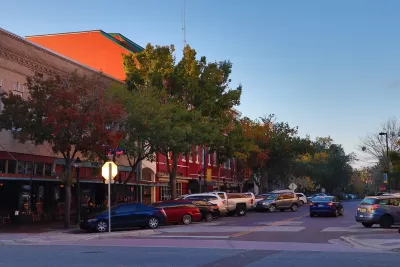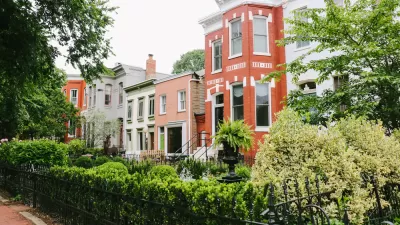The northern Florida city could follow others in removing barriers to building accessory dwelling units and multifamily buildings in neighborhoods currently zoned for single-family homes. Some local residents oppose the plan.

Updated August 8, 2022 to more accurately describe the proposed zoning changes.
A proposal backed by the mayor of Gainesville, Florida is being touted as a boost to affordable housing and equitable development, while critics say the city did not engage with the public enough before drafting the plan, according to an opinion piece by Robert Mounts.
The staff proposal would consolidate all single-family residential zoning districts into one residential zone (RZ), amend permitted uses to allow for small-scale multi-family development, reduce setback and lot size restrictions, remove occupancy limits, increase bedroom limits within the University of Florida (UF) Context Area and streamline 'lot split' regulations.
"The staff says these changes would facilitate diversification of housing types to meet increasing housing demand and allow for a more 'equitable' development pattern in Gainesville." Like similar zoning reform proposals in other cities, "RZ zoning will not eliminate single family housing as a permitted use. Rather, it would introduce the opportunity for small scale multi-family development in all residential areas, thereby providing homeowners with development options that they may choose to explore at their option." Mounts continues, "Similarly, the staff asserts that new lot size and setback requirements associated with RZ will not amend existing lot sizes but will provide development and lot-split opportunities for homeowners to explore at their discretion."
Mounts opposes the proposal, calling it "top-down" and "developer-friendly," while Gainesville's mayor has pitched it as a way to improve equity and housing affordability while allowing homeowners to make extra income from their property.
FULL STORY: Mayor Poe making a final push for 'inclusionary zoning'

Maui's Vacation Rental Debate Turns Ugly
Verbal attacks, misinformation campaigns and fistfights plague a high-stakes debate to convert thousands of vacation rentals into long-term housing.

Planetizen Federal Action Tracker
A weekly monitor of how Trump’s orders and actions are impacting planners and planning in America.

San Francisco Suspends Traffic Calming Amidst Record Deaths
Citing “a challenging fiscal landscape,” the city will cease the program on the heels of 42 traffic deaths, including 24 pedestrians.

Defunct Pittsburgh Power Plant to Become Residential Tower
A decommissioned steam heat plant will be redeveloped into almost 100 affordable housing units.

Trump Prompts Restructuring of Transportation Research Board in “Unprecedented Overreach”
The TRB has eliminated more than half of its committees including those focused on climate, equity, and cities.

Amtrak Rolls Out New Orleans to Alabama “Mardi Gras” Train
The new service will operate morning and evening departures between Mobile and New Orleans.
Urban Design for Planners 1: Software Tools
This six-course series explores essential urban design concepts using open source software and equips planners with the tools they need to participate fully in the urban design process.
Planning for Universal Design
Learn the tools for implementing Universal Design in planning regulations.
Heyer Gruel & Associates PA
JM Goldson LLC
Custer County Colorado
City of Camden Redevelopment Agency
City of Astoria
Transportation Research & Education Center (TREC) at Portland State University
Jefferson Parish Government
Camden Redevelopment Agency
City of Claremont





























